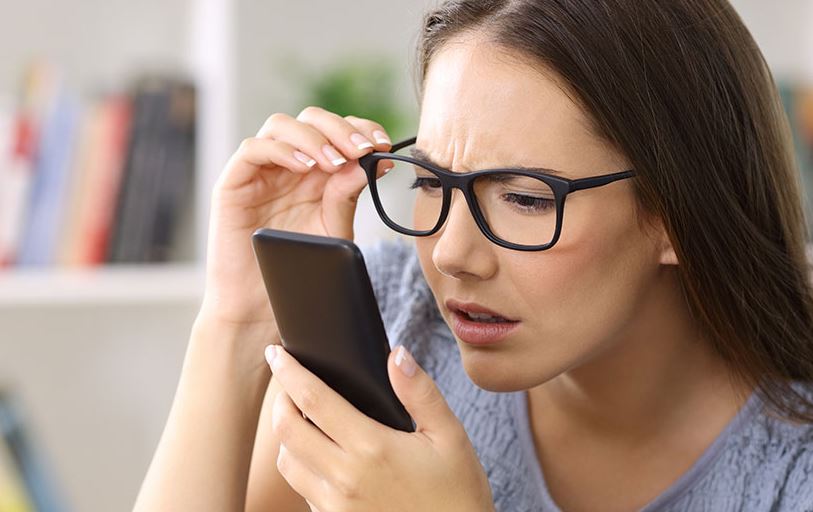
Our eyes are a vital part of our daily life, and any issues or discomfort can severely impact our ability to function properly. Eye problems can arise due to a variety of factors, ranging from genetics to lifestyle choices. In this article, we will discuss some of the most common types of eye problems, their causes, and symptoms.
If you are looking for an ophthalmologist in Chennai, there are many qualified and experienced doctors who can provide comprehensive eye care services. Chennai is home to several well-equipped eye hospitals and clinics that offer advanced diagnostic and treatment options for various eye conditions.
Common Eye Problems
Refractive Errors
Refractive errors occur when the shape of the eye prevents light from focusing directly on the retina, resulting in blurred vision. Common types of refractive errors include myopia (nearsightedness), hyperopia (farsightedness), and astigmatism. Refractive errors can be corrected with eyeglasses, contact lenses, or refractive surgery.
Cataracts
Cataracts occur when the lens of the eye becomes cloudy, resulting in blurred or hazy vision. The most common cause of cataracts is aging, but they can also be caused by injuries, certain medications, and medical conditions such as diabetes. Cataracts can be treated with surgery, during which the cloudy lens is removed and replaced with an artificial lens.
Glaucoma
Glaucoma is a group of eye conditions that damage the optic nerve and can lead to vision loss or blindness. It is often caused by increased pressure in the eye, but can also be caused by other factors such as genetics or medical conditions. Symptoms of glaucoma may not appear until later stages, making regular eye exams important for early detection and treatment.
Age-related Macular Degeneration (AMD)
AMD is a condition that affects the macula, the part of the eye that is responsible for central vision. It is most commonly seen in individuals over the age of 50 and can cause blurry or distorted vision. There are two types of AMD: dry and wet. Dry AMD has no cure, but lifestyle changes such as quitting smoking and eating a healthy diet may help slow its progression. Wet AMD can be treated with injections into the eye or laser therapy.
Diabetic Retinopathy
Diabetic retinopathy is a complication of diabetes that affects the blood vessels in the retina. It can cause blurry or distorted vision, and in severe cases, blindness. Good blood sugar control and regular eye exams can help prevent or delay the onset of diabetic retinopathy.
Dry Eye
Dry eye occurs when the eyes do not produce enough tears or the tears evaporate too quickly. It can cause discomfort, redness, and blurred vision. Dry eye can be treated with artificial tears, prescription eye drops, or lifestyle changes such as using a humidifier or taking breaks from screen time.
In conclusion, there are several types of eye problems that can affect individuals of all ages. Regular eye exams and healthy lifestyle choices can help prevent or detect eye problems early, leading to better outcomes and vision health.
Frequently Asked Questions
What are the different types of eye surgery?
There are many different types of eye surgery, including LASIK, PRK, cataract surgery, glaucoma surgery, and corneal transplant surgery. Each type of surgery is designed to address specific eye conditions and may involve different techniques.
Who is a good candidate for eye surgery?
The ideal candidate for eye surgery depends on the type of surgery being considered. Generally, people who have stable vision, healthy eyes, and realistic expectations are good candidates for eye surgery. However, each person’s situation is unique, and it’s important to consult with an eye surgeon to determine if you are a good candidate.
What are the risks associated with eye surgery?
As with any surgical procedure, there are risks associated with eye surgery. Some potential risks include infection, dry eye, vision loss, and problems with night vision. However, the risks of complications are generally low, and most people experience few or no side effects from eye surgery.
What is the recovery process like after eye surgery?
The recovery process after eye surgery varies depending on the type of surgery. In general, you will need to take it easy for a few days after the procedure and avoid strenuous activity. You may also need to use eye drops or other medications to help manage pain and reduce the risk of infection. Your surgeon will provide detailed instructions on how to care for your eyes after surgery.
How long does it take to see results after eye surgery?
The timeline for seeing results after eye surgery depends on the type of surgery and your individual situation. Some people notice an improvement in their vision immediately after the procedure, while others may take several days or weeks to see significant improvement. Your surgeon will provide you with information on what to expect in terms of recovery and improvement in your vision.
Will I need glasses after eye surgery?
Whether or not you will need glasses after eye surgery depends on the type of surgery you have and your individual situation. LASIK and other refractive surgeries are designed to reduce or eliminate the need for glasses or contact lenses, but you may still need reading glasses as you age. Cataract surgery and other procedures may require the use of glasses to achieve optimal vision.
How long do the effects of eye surgery last?
The effects of eye surgery can last for many years, but some procedures may need to be repeated over time. LASIK and other refractive surgeries generally provide long-lasting results, but the effects of cataract surgery and other procedures may diminish over time as you age.
Is eye surgery covered by insurance?
The coverage of eye surgery by insurance varies depending on the type of surgery and your insurance plan. Some types of eye surgery, such as cataract surgery, are typically covered by insurance, while others, such as LASIK, may not be covered. It’s important to check with your insurance provider to understand your coverage options.
How do I choose the right eye surgeon?
Choosing the right eye surgeon is an important decision that can have a significant impact on the outcome of your surgery. Look for a surgeon who has extensive experience in the type of surgery you need, and who takes the time to answer your questions and address your concerns. You may also want to read reviews from other patients and ask for referrals from your eye doctor or other trusted healthcare professionals.







